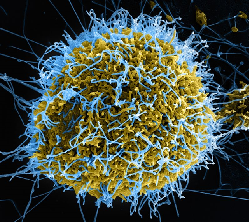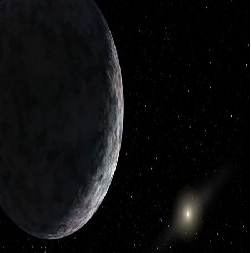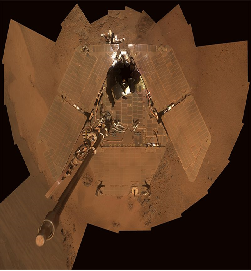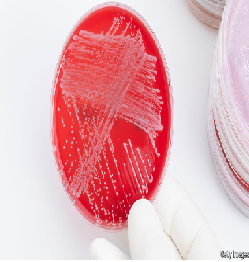February 2019 Ideas and Innovation
Read the articles selected in February 2019
How the periodic table changed the world
By Lewis Dartnell
Source: The Guardian Weekly, 15 February
The Mendeleev’s table, invented to give structure and order to the matter of the universe, has pushed through the holes placed in the grid of the known elements the artificial creation of new ones, but while its borders are widespreading to its extremes, the periodic table risks to lose some of its natural fundamentals.
Classify viruses – the gain is worth the pain
By Jens H. Kuhn,etc
Source: Nature, 20 February

Viruses hold the secret of life. A taxonomy of viruses, realized with the tools of the current technology, is of the outmost importance to discover new therapies. An international committee of experts preside over this colossal work, given the stellar number of existing species.
Read more:
https://www.n tra bene e male.ature.com/articles/d41586-019-00599-8
El cerebro humano ha perdido capacidad de crítica
By Josep Massot
Source: El País, 19 February
The shift from a joining communication, that is in presence, to a connective one, that is in the absence of the body, signs a new era after the modernity, because the acceleration and intensifying of the information makes the brain less able to distinguish between the good and the evil.
Astronomers discover solar system’s most distant object, nicknamed “FarFarout”
By Paul Voosen
Source: Science, 21 February

In the search for the ninth giant planet, a team of astronomers has discovered within two months two celestial bodies, called Farout and FarFarout, as orbiting around the extreme borders of the solar system. The orbits of these dwarf planets could unveil the presence of the hypotetic Planet Nine.
Read more:
Opportunity lost: NASA says goodbye to pioneering Mars rover
By Alexandra Witze
Source: Nature, 13 February

The exploration of Mars continues. After the discovery of the most ancient habitable environment on the planet by the Opportunity rover, the NASA, the ESA and the China National Space Administration are going to dig the Martian interior with new missions.
Read more:
https://www.nature.com/articles/d41586-019-00575-2
A new painkiller nanomedicine to bypass the blood-brain barrier and the use of morphine
By Jiao Feng etc
Source: Science, 13 February
The misuse and addiction to opioids is a public health problem, given the severe side effects associated with morphinic treatments. An endogenous neuropeptides, bioconjugated with lipid squalene and formulated in nanoparticles promises plasma stability and an action limited to the inflamed tissues.
Read more:
http://advances.sciencemag.org/content/5/2/eaau5148
Love on the bits
By Sébastien Julian S.J.
Source: L’Express, 13 February
As in the past they used to go to the witch, today they ask the algorithms to solve love questions. Soon the AI will allow to predict the duration of a relation. Some applications are already able to sort couples on the base of a score and organize meetings, and of sure you have to pay for that.
Handicap et IA: les voix de l’accessibilité
By Rémi Demichelis
Source: Les Echos, 12 February
Vocal assistants, systems of visual recognition and other digital tools can be conceived to overcome the barriers of disability. Some start-ups have operated in that direction because of a proper intuition, but there would be appropriate regulations to obligate companies to ideate products for handicap.
Nature-based Solutions for agricultural water management and food security
Source: http://www.fao.org
Water is fundamental for food to grow, but the development of hydric infrastructures can compromise ecosystems. Nature-based solutions, according to transdisciplinary principles nurtured with scientific, case-specific knowledge are the tools of a sustainable and efficient agriculture.
Read more:
http://www.fao.org/3/CA2525EN/ca2525en.pdf
Nitrogen in the environment
By Carly J. Stevens
Source: Science, 8 February

Nitrogen is an abundant element on Earth and is an essential nutrient for all forms of life. Its amount in the environment has increased in excess in the rich world, due to the production of food. Technological improvements in the agriculture and industry can help regulate its natural fixation in the air, water and soils.
Read more:
http://science.sciencemag.org/content/363/6427/578
Carrère d’Encausse: “l’Académie rentre dans l’ère numérique”
By Claire Conruyt & Alice Develey
Source: Le Figaro, 8 February
In the general trend to the semplification and removal of complicated forms such as the linguistic conjugations and exceptions, the Académie française has shown with its new digital dictionnaire that technology can be used to conserve the languages in their complexity and catch them in their evolution.
Vaccine researchers are preparing for Disease X
Source: The Economist, 17 January

The scientists and the WHO are dealing with the possibility that a new currently unknown virus could cause the next public- health emergency. So they are trying new ways of making vaccines in general, using new molecular mechanisms.
Read more:
Extreme chemistry: experiments at the edge of the periodic table
By Philip Ball
Source: Nature, 30 January

In the search for the element 119, some scientists try to extend the periodic table to new heavy, long-lasting elements, created in the field of nuclear physics. Some researchers question however if pushing chemistry to its farthest borders is really helpful to chemistry with its magic numbers.
Read more:
https://www.nature.com/articles/d41586-019-00285-9
Physiker erzeugen neue Materieform
By Thomas Bergmayr
Source: Der Standard, 30 January
An international team of astronomers has created a new form of matter, with a very thick nucleus, made of sub- particles that are lighter than baryons. The scientists intend to push to the extremes the research for the latest elements of the known matter to find the keys for the dark matter.
Recent events highlight an unpleasant scientific practice: ethics dumping
Source: The Economist, 31 January
The relentless advancement of scientific technology, mostly in the medicine, has to reckon with the limitations imposed by national legislations, that are easy to avoid in the most disadvantaged and lax countries. The European Commission has sponsored TRUST, a project to investigate and prevent ethics dumping.
Read more:
Technologies et santé: l’urgence d’une stratégie nationale et européenne
By Cédric Arcos
Source: Les Echos, 25 January
The reforms of the health systems have to deal with the technological evolution of the sector, which is to be held as a strategic priority, an object of national and European sovranity, given the ever bigger interest in the health shown by the world’s digital giants.
Info
- Pubblicato il : 25/02/2019 Modificato il : 04/04/2019

